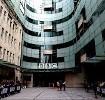While the more apocalyptic predictions may not have been realised, there’s still a need to remain vigilant about threats to the BBC’s independence, as well as its ability long term to operate as a universal public service broadcaster. The most pressing issue is that the proposals for appointments to the new unitary board mean government appointees will, for the first time, sit at the heart of the BBC’s operational and editorial decision-making structures.
I’m particularly troubled by this in the light of recent situations in which a number of European governments have been able to place undue pressure on public broadcasters specifically through the appointments process.
I’d like to see an appointments process that is not contaminated by the possibility of “political or personal patronage”, the phrase used by the former commissioner for public appointments, Sir David Normington, when setting out his own concerns.
It’s also vital that Ofcom has a remit explicitly recognising the BBC’s unique position as a universal public service broadcaster, one that prevents rivals from vexatiously calling for sanctions because the BBC is being insufficiently “distinctive” – a word that rather chillingly recurs throughout the white paper. The paper also rejects the proposal that the licence fee should be set by an independent body, but I remain unconvinced that limited parliamentary scrutiny will ever be sufficient to make the process fully transparent. Finally, I’m concerned by any diminution of the public purpose on “technological innovation”. The BBC has a strong record in this area, and it would be a huge loss to both licence payers and the industry if the BBC was not tasked with developing new technologies that could operate in the broad public interest.
Written by David Puttnam
Source: The Guardian


